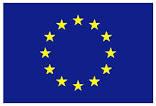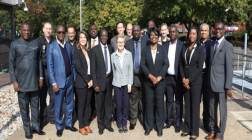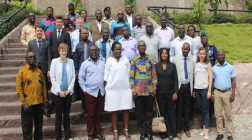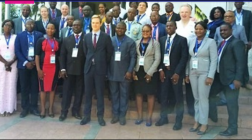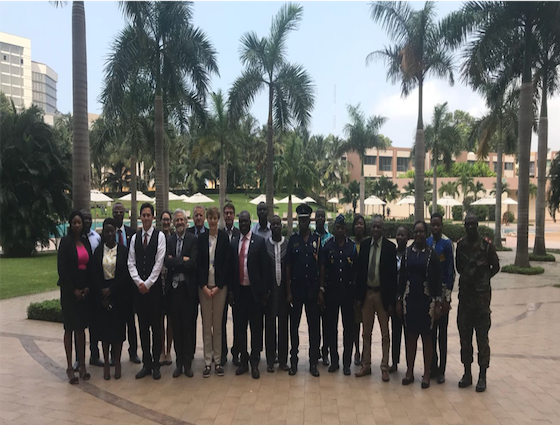
EU-ATT Outreach Project II Roadmap Activity II for Ghana
As part of the EU Arms Trade Treaty Outreach Project (ATT-OP II), BAFA conducted the Second Roadmap Activity for Ghana on 10-11 July in Accra.
The workshop continued discussions on the key issues related to the the Ghanaian national ATT process as identified in the First Roadmap Activity. The aim of such discussion was to promote relevant exchanges between Ghanaian ATT stakeholders. The two-days workshop was supported by four export control experts from Germany, Latvia and the United Kingdom.
The workshop was the second of five activities in the framework of the Ghanaian Roadmap and encompassed the topics legal drafting, licensing procedures and end-use certificates. The objective was to bring together and sensitize policy makers from relevant Ministries/Agencies and concerned Parliamentarians in Ghana and to discuss the next steps in the national ATT process.
The event was attended by more than 20 representatives from the National Commission on Small Arms and Light Weapons (NACSA), the Ghana Police Service, the Ghana Armed Forces (GAF), the Ministry of Foreign Affairs & Regional Integration, the Ghana Customs Authority, the Office of the Attorney General, the Law Reform Commission and the Defence and Interior Committee of the Parliament of Ghana. The EU team of experts and BAFA, as implementer, will continue the series of activities engaging all relevant Ghanaian stakeholders throughout the duration of the project.
The goal of 'EU ATT Outreach Project' is to support the early entry into force and effective implementation of the ATT. Upon request, the project will support a number of States in strengthening their arms transfer control systems with a view to being able to implement the ATT. The project also aims to increase awareness and ownership of the ATT at national and regional levels and therein contribute to its universalisation. The EU ATT Outreach Project has three different components: 1) Tailored National Assistance Programmes; 2) Ad-hoc Activities; and 3) Regional Seminars. National assistance programmes are developed in close cooperation with partner countries. Key elements of national assistance programmes are: an initial needs assessment visit; inclusive roadmap development; and, practical support follow up activities. The project is implemented by BAFA and co-funded between the EU and the Government of the Federal Republic of Germany.



